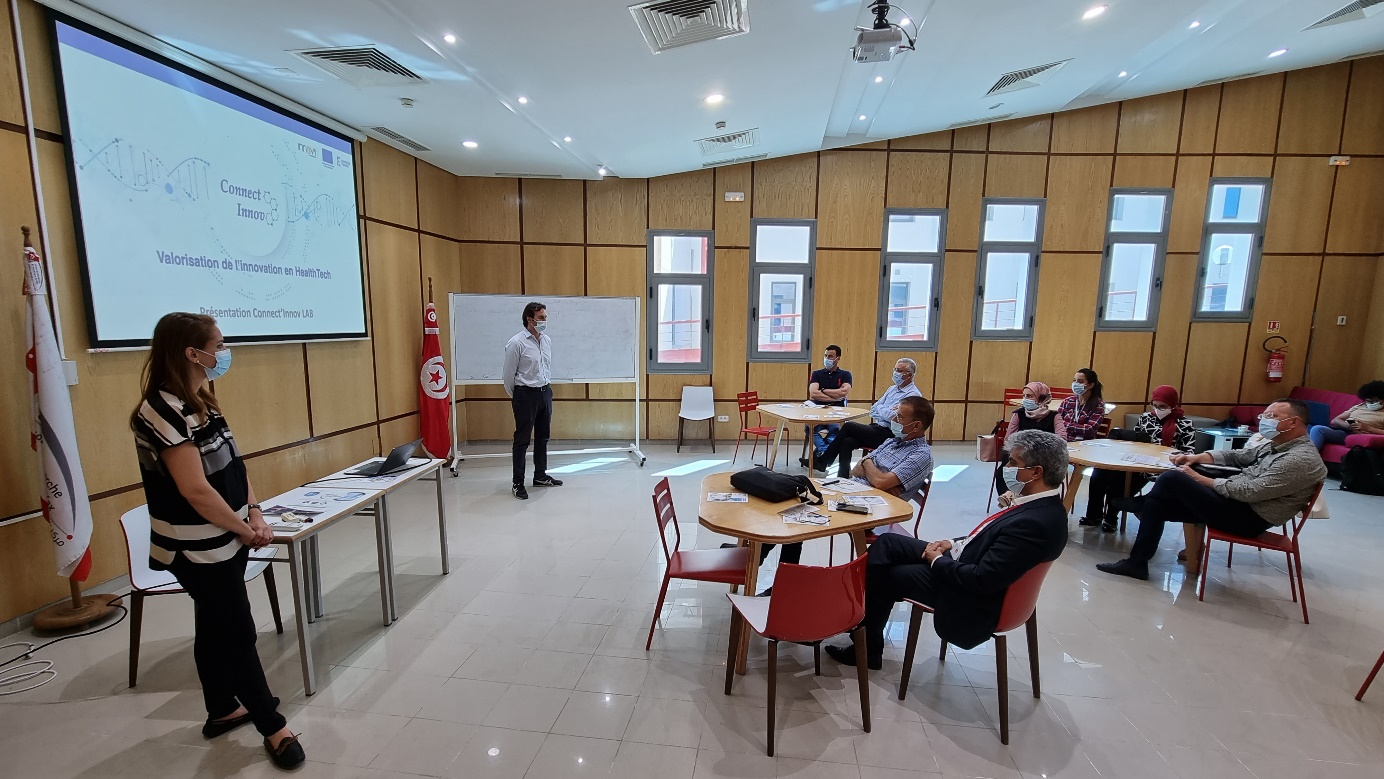 Tunisian entrepreneurs at an event with the organization Connect'Innov Tunisia.
Tunisian entrepreneurs at an event with the organization Connect'Innov Tunisia.
More women are graduating from higher-level programs than ever before in Tunisia, and an impressive percentage of these women now focus on Information and Communications Technology (ICT) . In our research, we found that 61% of graduates of higher-level tech programs are women and 39% are men. Women in Tunisia also graduate from other STEM programs at remarkably high rates, from engineering and manufacturing to construction.
Yet when it comes to employment, we see a different picture entirely- the trend of women’s higher participation dissipates.
Startups can make a difference in Tunisia.
Recent research in the country finds that startups and Small and Medium-sized Enterprises (SMEs) have become a critical source of employment and growth. This is particularly good news in the face of the weakened economic situation over the past two years – one that has been exacerbated by the global COVID-19 pandemic.
However, finding financing remains a huge constraint for startups and SME development in the country. The financial ecosystem is undeveloped and risk averse. There is limited private equity and venture capital. Lending is dominated by banks with high collateral requirements and steep borrowing costs. Women in particular face obstacles borrowing money and starting businesses, according to our research.
The World Bank is keen to support women and SMEs development. The 66.9 million euro Bank Innovative Startups and SME Project, which came into effect in 2020 and is expected to close in 2026, is supporting the government’s Startup Tunisia program, and targets startups and innovative SMEs with high growth potential while fostering the entrepreneurship ecosystem, such as venture capital funds, incubators, accelerators, and co-working spaces.
Government efforts through the project will focus on mobilizing additional investment through private sector funds that target innovative startups and will co-invest directly in innovative SMEs with private sector partners.
To this end, the project recently launched a US$17 million SME funding vehicle to coinvest with private investors. This Fund, called InnovaTech, focuses on investments in innovation and technology in digital media, renewable energy, agribusiness, ICT, media and e-commerce and in all technologies allowing digital transformation. The SMEs involved will be required to be financially sound, at least two years old, have a workforce between 10 and 200 people, a confirmed capacity for growth, and potential for inclusive development.
The Innovatech fund complements Anava, a $US45 million pooled investment also set up by the project to support startups at all stages of growth. By increasing access to financing and strengthening business development support for startups and SMEs, the project is designed to contribute to job creation, while driving the country’s innovation and productivity.
The project is also helping to build the entrepreneurial skills of young graduates and entrepreneurs. It fosters the development of a cadre of fund managers with expertise in early-stage investments and supports the efficiency of startup support organizations. It aims to enhance the productivity and competitiveness of Tunisian startups and SMEs while supporting the inclusion of unemployed women and youth in lagging regions.
Among the first beneficiaries of the project ecosystem support program is Connect'Innov, which supports development in the field of health technology. This incubator has launched awareness campaigns with a Tunisian university (Connect'Innov PREP), as well as an incubation program begun in May 2021.
Wafa Bchir, who has a background in molecular biology and biochemistry, is a co-founder of Connect’Innov. She spoke to us recently about progress in health technology in Tunisia. “Thanks to this Startup ecosystem financing program, we can support more advanced and mature projects with a view to expanding them internationally through a network of partners,” Bchir said. “Expanding the number of entrepreneurs in HealthTech and supporting the growth of project ideas are critical. So is the development of more advanced projects to create success stories.”
The pioneering policy of the Startup Act in Tunisia forged a pathway for entrepreneurs and investors. The project activities are kickstarting the process of creating new businesses while supporting entrepreneurs as they scale up. Other African countries are watching Tunisia’s success: Kenya, Ethiopia and Uganda are also moving forward with start-up policies to foster better business environments for everyone, including women and youth.





Join the Conversation